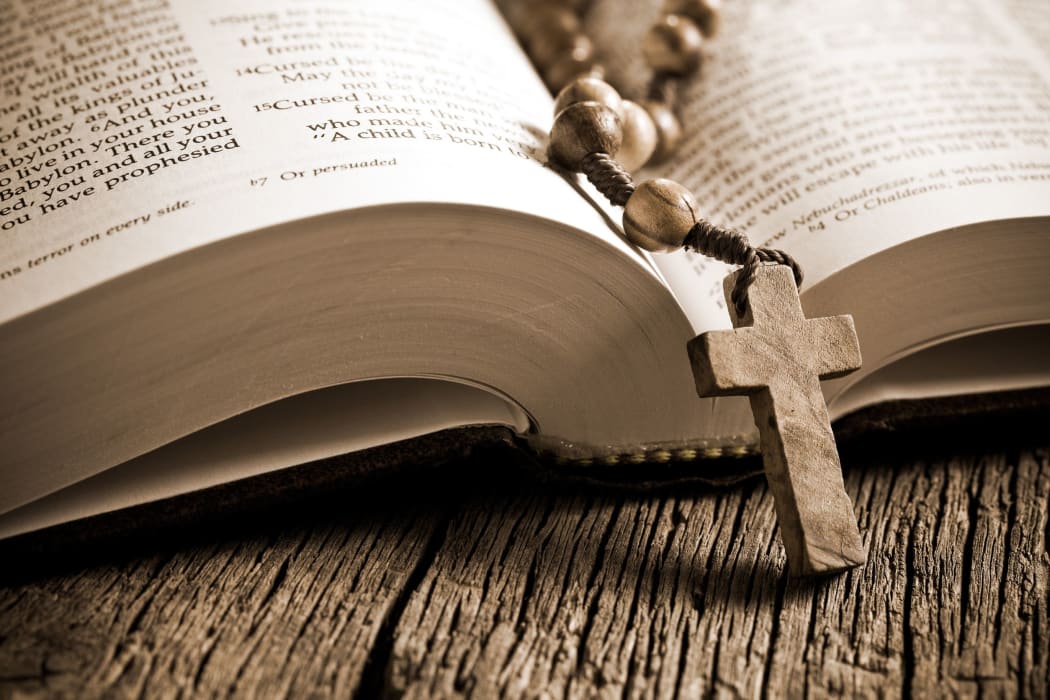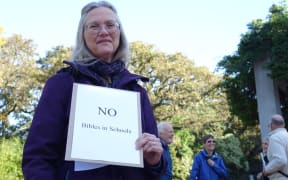The government is being accused of breaching the Bill of Rights Act with religious instruction in schools.

Photo: 123rf
The Secular Education Network has filed a case with the Human Rights Review Tribunal, saying the Education Act allows religious favoritism in state schools, which it says is prohibited under the Bill of Rights.
Its spokesman, David Hines, a retired journalist and lay preacher, said Section 78 of the Education Act allowed a school to hold religious instruction for up to an hour a week or 20 hours a year.
But he believed all religions should be taught in an academic way - the Christian religion should not be given preferential treatment - and the impact could be damaging for other people.
"It's a spit in the face for every other religion, it is saying that Christianity is superior," he complained.
"It is telling the Jews that the Bible is a Christian book when the Jews have substantially the same book but put a different interpretation on it.
"It is a put down for atheists because it says you have got to believe in God to live a good life."
David Hines has gathered 26 witnesses for his case, including 13 parents who said their children were mistreated.
One of them is Tanya Jacob, who had to pull her children out of their school in Christchurch.
"We knew there were going to be these bible classes so we thought we would just opt out," she said.
"Over time we found that our kids were being put back in (to the class) and we found they were being told they were going to Hell.
"They were also being badgered for not believing in God."
Joining the case along with Mrs Jacob were leaders from five religions saying their beliefs were misrepresented.
Another witness was Paul Morris, Professor of Religious Studies at Victoria University.
He examined three religious instruction courses used in schools and found defects in all of them.
"They present Christianity from an evangelical perspective," he said.
"The teachers' guides include prayer sessions, thanking God for the Bible, thanking God for the miracles, they do not address students who come from different faith worlds."
The Christian Education Council issued a statement defending its position.
The council, whose expressly stated aim was to equip and inspire children through values-based Christian religious education, said more than 600 schools throughout New Zealand invited in its religious instructors each week.
It said it was the largest provider of religious instruction in the country, and was passionate about its continuation in New Zealand's state schools.
However, Mr Hines argued that the religious instruction being done by this group was not, strictly speaking, legal.
He said the Bill of Rights Act prohibited state institutions from favouring one religion over another, but the Education Act allowed exactly that.
"Those two laws are in conflict with each other," he said.
"And we are asking the tribunal to make a ruling that the laws are inconsistent, and send a report to parliament saying they should consider changing the law."
Mrs Jacob said she pulled her children out of school for religious instruction that should not have existed, she said.
"It's got nothing to do with normal education," she said.
"If you want your children to be brought up in a faith, then you take them to church or the temple or a mosque.
"That is not for school time. All our kids should be able to go to school without being made to believe in things or be harassed for not believing in things."
The attorney general was not commenting on the upcoming hearing, nor was the Ministry of Justice, except to confirm that a case has been filed.
No date for a hearing has been set but the battle lines have been drawn, with senior lawyers, including a QC, hired for representation.



